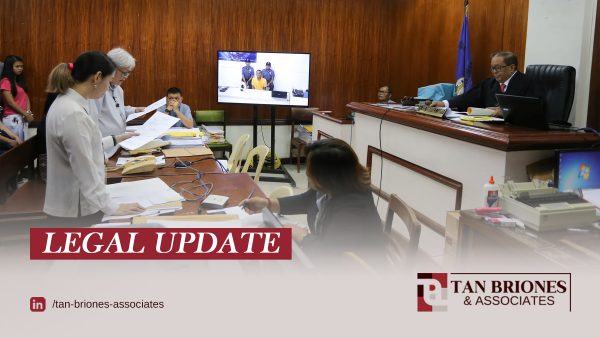
The Supreme Court (SC) emphasized that detaining individuals beyond the maximum penalty prescribed by law constitutes cruel and inhumane treatment, underscoring the judiciary’s duty to uphold the dignity of detainees.
In a decision penned by Associate Justice Mario V. Lopez in People v. Ruby Agustin and Jovelyn Antonio, the Supreme Court’s Second Division ordered the release of Jovelyn Antonio, who had served more than the maximum penalty for her crime.
“The power of the courts to commit prisoners carries with it the duty to immediately release them in case of detention for a period equivalent or longer than the maximum imposable penalty. Any prolonged imprisonment is not only cruel and inhumane but is also a ‘second-by-second assault on the soul, a day-to-day degradation’ of the dignity and person of the detainees,” the decision read.
FACT AND ISSUE
Ruby Agustin and Jovelyn Antonio were hired as appraiser and secretary of GQ Pawnshop, respectively.
Antonio maintained records of the transactions and served as a reliever for Agustin as an appraiser whenever the latter was unavailable. After some time, both resigned from GQ Pawnshop.
Later, the new appraiser, Anabelle Reyes, discovered that several pawned items were fake and found that the total value of these transactions amounted to PHP 585,250.
Both of them admitted the fraud and undertook to return the money within a period of one year.
The owner and the manager filed a criminal complaint against Agustin and Antonio for qualified theft. Upon arraignment, both of them pleaded not guilty.
In 2011, the Regional Trial Court (RTC) convicted Agustin and Antonio of qualified theft.
Dissatisfied with the decision, Agustin and Antonio elevated the case to the Court of Appeals (CA), arguing that they were not liable for qualified theft as they did not steal personal property from the pawnshop.
The CA affirmed the RTC’s decision. Agustin and Antonio then sought reconsideration from the Supreme Court (SC), but it was denied.
Antonio was sentenced to reclusion perpetua, or at least 30 years in prison, and was committed to the Correctional Institution for Women on November 24, 2011.
Meanwhile, Agustin died in 2017 due to multiple organ failure.
The issue in this case is whether Antonio should serve the penalty of reclusion perpetua for the crime of qualified theft.
RULING
The SC upheld Antonio’s conviction, finding that the prosecution proved all the elements of qualified theft.
However, the High Court reconsidered the penalty that could be imposed. Given the amount stolen, the appropriate penalty for Antonio’s crime is prision mayor, which carries a maximum imprisonment term of 10 years and 8 months.
“Article 89, paragraph 2 of the RPC is explicit that criminal liability is totally extinguished by service of the sentence. The records show that Jovelyn has been incarcerated from November 24, 2011 up to present or for almost 12 years which is much more than the maximum imposable penalty of 10 years and eight months,” the High Court ruled.
“The policy is to release detainees who have been imprisoned for a period equivalent or longer than the maximum imposable penalty,” it furthered.
Follow Tan Briones & Associates on LinkedIn for more legal updates and law-related articles.







